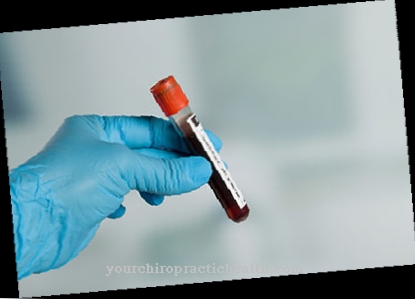At a Tetany the muscles and nerves become overexcited. This can manifest itself in spasmodic disorders of the motor skills up to very painful muscle spasms, but in milder cases it can only be indicated by a tingling sensation. Most of the time tetany affects either the face, here the facial nerve, or the arms and legs.
What is tetany?

© rainbow33 - stock.adobe.com
Under one Tetany one understands the over-excitability of nerves and muscles, which can show from a slight tingling sensation to motor disorders to very painful muscle cramps. Most of the time, the arms, legs, or face are affected by tetany. Both hypocalcemic tetany and normocalcemic tetany are possible causes.
In both cases, for different reasons, the serum calcium level in the blood decreases. A tetanic seizure then occurs as a symptom, mostly in the face, arms or legs, but in rare cases also in the urinary bladder, intestines or respiratory muscles. When diagnosing tetany, it is important to find the exact cause, because this is the only way to properly treat tetany, which is only a symptom.
causes
There are several causes that cause tetany. One of the causes is this hypocalcemic tetany. In this case the serum calcium level is lowered. Reasons for this can be vitamin D deficiency, kidney weakness, pancreatitis, but also a food intolerance to gluten or a calcium absorption disorder.
Therefore, the electrical conductivity of the nerve-muscle transmission changes and this leads to an increased excitability of the muscle cells. Another cause is that normocalcemic tetany. In this case too much calcium is bound, so that the free serum calcium decreases. The reasons for the form of tetany can be a magnesium deficiency, but also hyperventilation or a cranial brain trauma and severe vomiting.
Symptoms, ailments & signs
The tetanic attack can be viewed as a symptom of tetany. This attack often begins with a tingling sensation in the region of the body. Psychological symptoms such as irritability, restlessness or even fear can also occur. Usually the typical muscle cramps in the face, arms or legs then occur.
The so-called fish mouth position can occur in the face. If the arms are affected, the hands are often cramped into paws. If the muscle cramp occurs in the legs, the equinus foot position is a typical sign of tetany. The urinary bladder, intestines or the respiratory muscles are rarely affected.
Urinary urgency, diarrhea and shortness of breath are usually the result. Most tetanic seizures only last minutes. However, it can happen that such attacks can last for up to several hours. In such cases, a calcium injection from a doctor will usually help.
Diagnosis & course of disease
Tetany in itself is only a symptom. When diagnosing it, it is important to find out the exact cause. A blood test often helps. Here the concentration of electrolytes and calcium itself, but also of vitamin D and parathyroid hormone is determined. It may also make sense to do kidney tests to find kidney disease.
You may need to check for inflammation of the pancreas or an underactive parathyroid gland. It can also make sense to examine the patient to see whether they are gluten intolerant. Whether the tetany was caused by hyperventilation can be determined by examining the blood gases.
Complications
If the tetany is left untreated, serious complications can occur. As a result of the disease, the kidney is initially damaged. In the worst case, it can lead to organ failure or dysfunction. The latter is associated with symptoms of urinary tract infections, pain and sepsis. Other organs are also damaged in the course of a tetanic seizure - for example, symptoms of liver, gall bladder and brain.
In the case of the brain, the disease can cause permanent damage and thus lead to neurological and mental failures. In the further course, tetany can cause paralysis, usually associated with psychological complaints such as anxiety disorders or depression. Ultimately, the over-excitability of the muscles ultimately leads to unconsciousness and death of the patient.
In less severe cases, complications such as urination and incontinence as well as breathing difficulties occur. This can be accompanied by dehydration and deficiency symptoms, which, if left untreated, can also lead to neurological failures and other complaints. When treating tetany, the main risks are from the incorrect use of medication. Dehydrating agents and laxatives can make the symptoms worse.
When should you go to the doctor?
An emergency doctor should be called in the event of a tetanic attack. The first signs such as the typical tingling sensation, restlessness or irritability should be observed and treated if possible. The patient should lie down quietly and wait for the seizure to subside. A mild attack only lasts a few minutes. Meanwhile, the person concerned must be observed and reassured. Sometimes symptoms such as shortness of breath or diarrhea occur that need immediate treatment. In the event of breathlessness, the person concerned should unbutton their top and lie down on their back.
Severe seizures can last several hours and should be treated by a doctor. The doctor can quickly relieve the symptoms with a calcium injection. Therefore, it is best to always consult a doctor with tetany or to drive the person to a hospital. If the seizures recur, a doctor must determine the cause. You may have kidney disease or inflammation of the pancreas that needs treatment first. Depending on the cause, the nephrologist, internist and orthopedist are also responsible in addition to the family doctor.
Treatment & Therapy
In general, with tetany it is important to find out the underlying disease and treat it accordingly. If the tetanic seizure is caused by hyperventilation, it is helpful to let the patient breathe in a plastic bag, because this way too much exhaled carbon dioxide gets back into the bloodstream. If you have severe tetanic seizures, which can sometimes last for hours, a calcium injection is helpful.
It is also important to know that treatment should not involve overdosing with calcium. If calcium or magnesium deficiency is caused by an improper diet, nutritional advice can help. Incorrect use of medication such as dehydrating agents or laxatives can also lead to electrolyte disorders and thus tetany. Here, too, a thorough explanation by the attending physician is necessary.
prevention
In cases in which the tetany is not triggered by a serious underlying disease, which must then be treated in any case, tetanic attacks due to disturbances in the electrolyte balance can often be avoided by an overall healthy lifestyle and diet. Vitamin D is primarily formed when people spend a sufficient amount of time outside in daylight.
In the darker months of the year in particular, it is therefore important to use the hours when there is enough daylight for walks or sports in the great outdoors. The diet should contain enough calcium and magnesium. Those who eat a wholesome diet will normally not get a calcium or magnesium deficiency in their diet.
Too much alcohol is dehydrating and can also pull too many electrolytes out of the body. The same goes for drainage and laxatives. Therefore, it is important to be careful with too much alcohol and when using said drugs.
Aftercare
Tetany is a spasm of the muscles. Since these muscle spasms can have various causes, the follow-up care is also related to the causal disease. In principle, a tetany may be due to a lack of magnesium, but these deficiency symptoms can arise from other diseases, such as the thyroid gland.
The follow-up care of the tetany itself is therefore not necessary, but the mostly permanent treatment of the actual disease. A special form of tetany is psychogenic tetany, which occurs in psychiatry and can cause seizures similar to epilepsy. The follow-up care is therefore always designed for the underlying disease and mostly not for the tetany itself.
Acute treatment of tetany completes the necessary measures. A specialist must determine whether the patient in question requires long-term therapy with certain drugs that can prevent or suppress or at least alleviate the recurrence of tetany.
In this case, individual advice from a specialist is essential. The patient should be educated and informed about how to prevent tetany. If there is an underlying systemic disease on which the tetany is based, lifelong treatment may be necessary, so that one cannot speak of pure aftercare here.
You can do that yourself
In the case of tetany, the first thing to do is to compensate for the causal calcium deficiency. You can do this by changing your diet or taking nutritional supplements. In addition, the patient has to take it easy, as the muscle cramps are usually extremely painful.
If the cramp is particularly intense, medication may also have to be taken. The patient should contact the doctor and write down the symptoms in a diary. Treatment of the pain must take place at the same time, especially in the case of persistent symptoms, such as those that can occur in normocalcemic tetany. The causative alcoholosis is to be treated by bed rest and avoiding risk factors. The tetany should have subsided after a few hours.
If the symptoms persist for a long time, there may be a serious illness. The patient should contact a specialist who, if necessary, will arrange for a further blood count examination. In severe seizures, epilepsy-like disorders can occur. Then the first aiders have to fixate the person concerned so that he does not get injured. It is important to reassure the person concerned and, if available, treat them with emergency medication. Then an examination in the hospital is necessary.


.jpg)
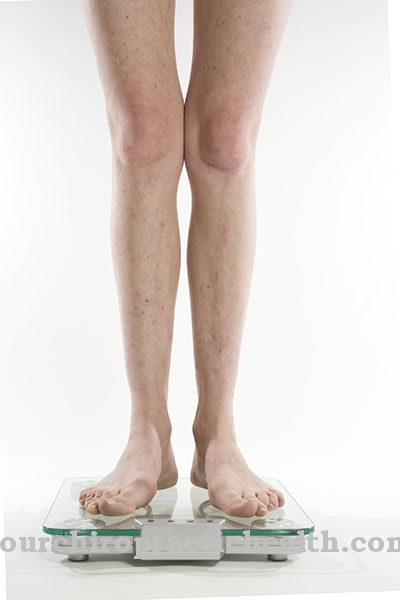
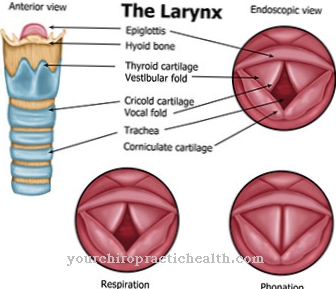
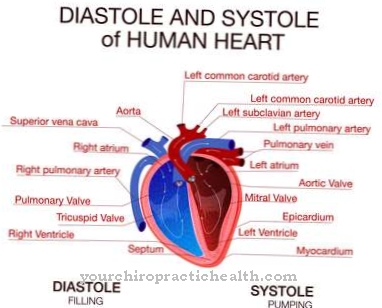
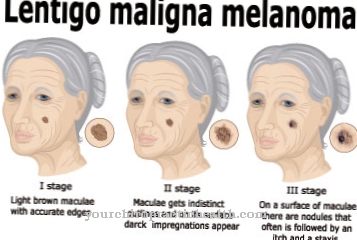








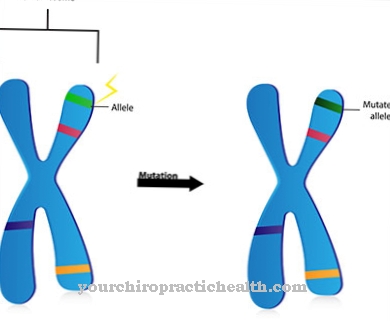
.jpg)






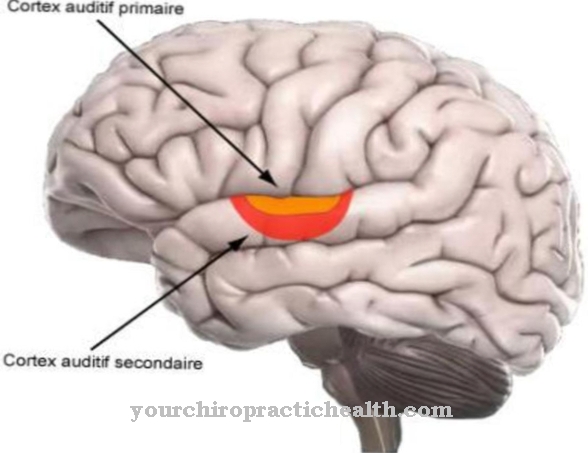
.jpg)


